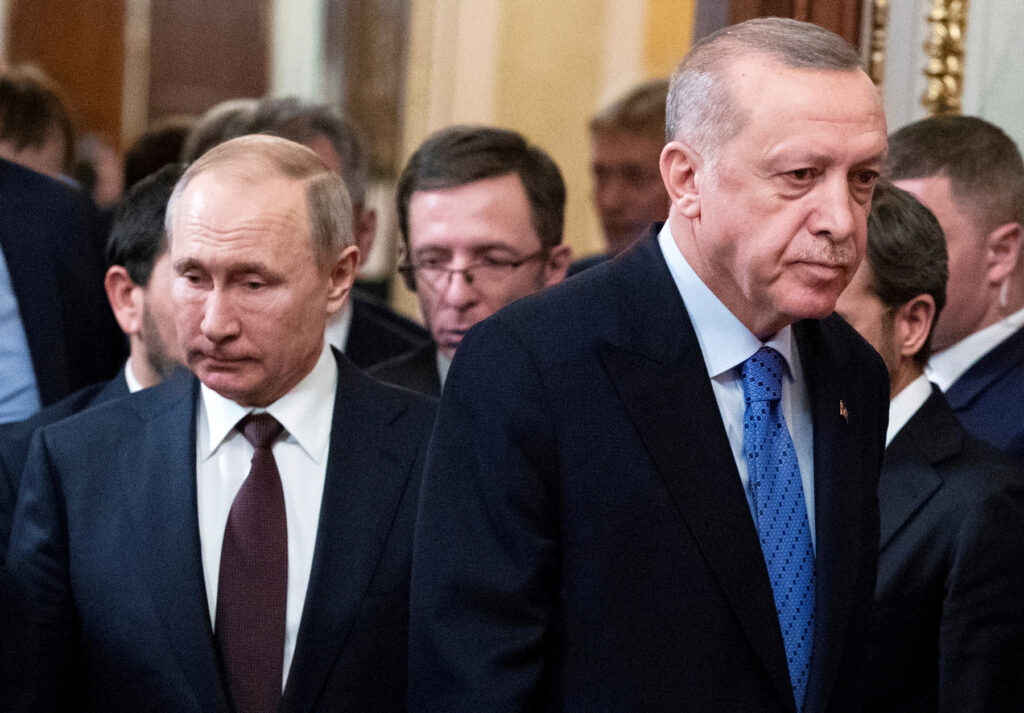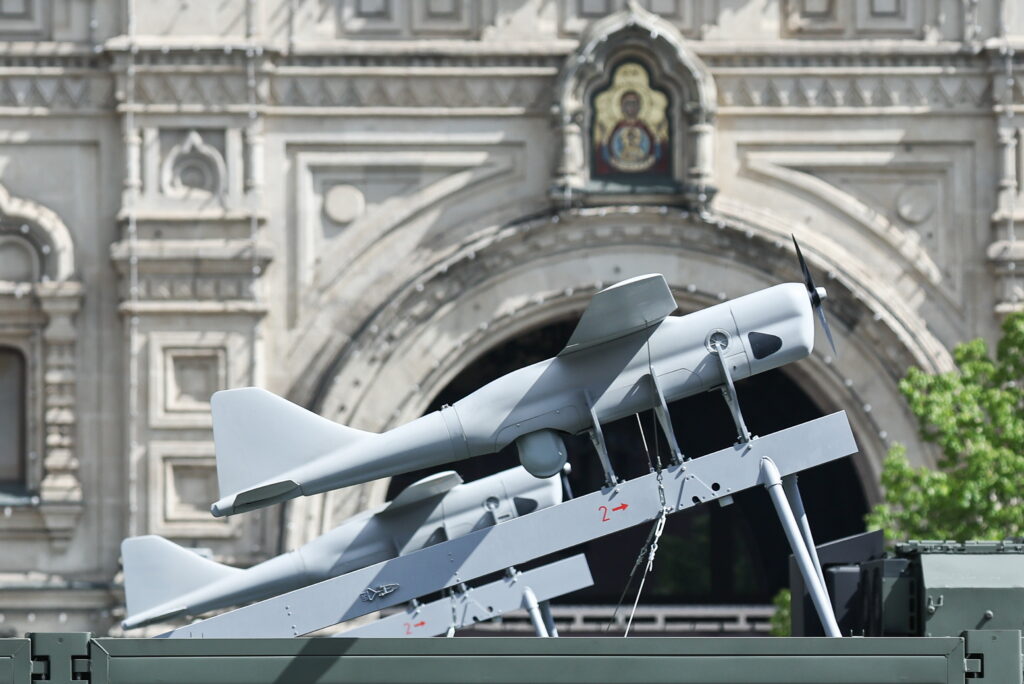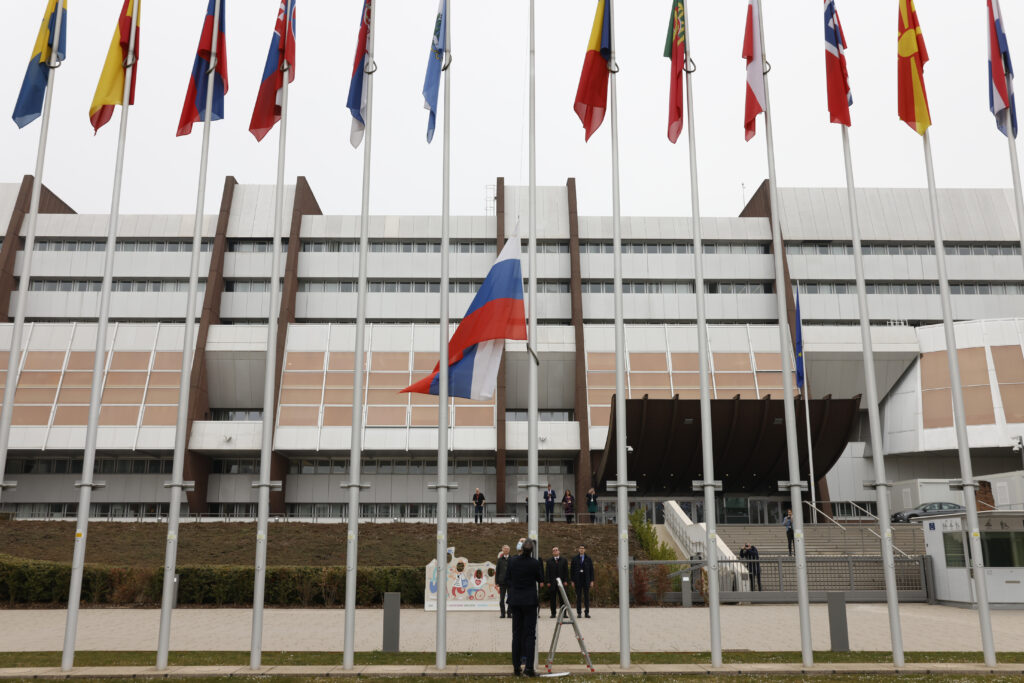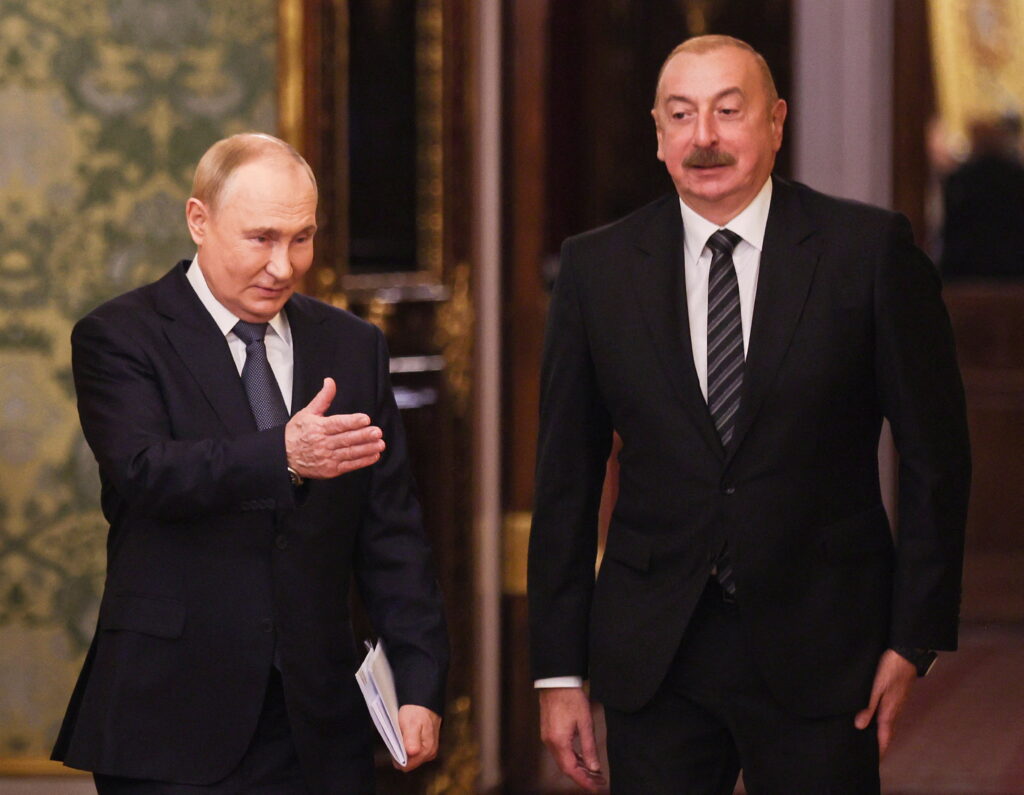In 2020, any remaining illusions around Russian-Turkish relations have been dispelled. For years, any strategic divergences were covered up by acrobatic feats of propaganda. The 2015 ‘stab in the back‘, for instance, was soon replaced by ‘friendship‘ and reflections on ‘Turkey’s disappointment with NATO‘. Footage of the two presidents eating ice cream together in 2019 was so sweet that the supplies of the S-400 to Ankara were perceived as attracting Turkey in the latter’s confrontation with the West. Foreign politicians and analysts also played into the hands of Russian propaganda here. Many saw Ankara’s actions from a lens of an impending exit from the Western orbit. Even the ardent anti-Turkish (or rather, anti-Turkic) experts on Russian TV had to refrain from their ‘I warned you’ and ‘there was a reason we fought the Turks so many times’.
Claims in the media that the Russian-Turkish wars of the past supposedly prevent sincere cooperation are missing the point. It is clear even to a person who is not a specialist in military issues that contemporary wars — especially wars involving nuclear superpowers — have long been waged in third-party quasi-states and countries that have lost part of their sovereignty for one reason or another. These wars are waged by advisers, mercenaries, special ops units, artillery and air power (manned and unmanned).
Interestingly, the presidents of Russia and Turkey are alike when manoeuvring between war and peace. Thus, it is both difficult and easy for them to tussle. It is difficult because escalation can become uncontrollable, but it is easy because they understand each other’s behaviour.
At first, the conflict in Syria escalated in February when some fighter jets allegedly accidentally killed at least 33 Turkish soldiers. In retaliation, the Turkish military put out of action more Syrian military personnel and equipment than Assad ever lost in a year of fighting against the opposition. Then, in Libya, with Ankara’s support, the Government of National Accord not only deprived Haftar of his monopoly over the offensive but also pushed aside Russian mercenaries.
In September, Russian-Turkish relations were put to the Karabakh test. There was an incident with an Mi-24 helicopter shot down (from Azerbaijani Nakhchivan). Extremists drew a parallel with the Russian Su-24 bomber shot down over Syria in 2015. Those appealing to Putin ‘to bring troops into Azerbaijan’ found links to Turkey in terrorist attacks in the EU; allegedly, Ankara was trying to divert attention from its foreign policy this way. It is not only television’s talking heads who are blaming Turkey for everything that goes wrong; this is also part of the tactic Moscow is using while pursuing its interests. These interests do not always follow the logic of cooperation between the countries. Officially, Moscow was cautious when commenting on Ankara’s role in the conflict in Transcaucasia and on related reports about Syrian fighters. Unofficially, through friendly media outlets, Russia accused Turkey of exacerbating the conflict, even verbally attacking the Syrian opposition, which was allegedly ready to redeploy its troops to Karabakh.
Behind-the-scenes scrimmage
The agreement to end the war in Karabakh reached by Russia, Armenia and Azerbaijan aims to end hostilities for at least five years. At the same time, it opened a new chapter in relations between Moscow and Ankara. The repeated statements by the Turkish Ministry of Defence about the joint peacekeeping mission and the recurrent denial by the Kremlin and Russian Foreign Ministry that Turks had been deployed in the conflict zone only highlighted existing differences of opinion. Still, the parties discuss issues behind the scenes, outside the framework of a tripartite agreement.
The reason for this ‘scrimmage’ is not so obvious from the point of view of Armenia and Azerbaijan, which have suffered huge losses. From a wider viewpoint, though, it is logical. Russia and Turkey define the scope of powers of the monitoring centre which Erdogan ensured by presidential decree. They do not hide the fact that their negotiating groups discuss Karabakh and Syria as one case.
This is not a novelty: Moscow and Ankara used to link the Libyan dossier with the Syrian one. For example, they organised talks in Moscow between Major General Ali Mamlouk, the head of the Syrian National Security Bureau, and Hakan Fidan, the head of the Turkish National Intelligence Organization (MIT). This was an attempt to reach an agreement between the head of Libya’s Government of National Accord, Faiz Saraj, and the commander of the Libyan National Army (LNA), Khalifa Haftar.
Ceasefire agreements are usually short-term; detailed documents have the potential to establish lasting peace. Russia’s fragmented diplomacy has problems with the details. The Kremlin is accustomed to negotiating agreements that leave a window of opportunity. It builds up muscle on an often fragile skeleton, while the carcass faces a growing threat of collapse. Is this occasion a deliberate anti-crisis move, aimed at intensifying contacts in the face of a looming escalation of the conflict? Or is it the result of shortcomings on the part of Russia’s bureaucracy? In 2017, for example, de-escalation zones in Syria were introduced; Moscow tried to draw up a rather vague memorandum in the course of a bilateral dialogue with the Syrian opposition on hypothetically neutral ground in Cairo. The government in Damascus — and indeed in Tehran — were ignored. The same happened in the case of the later 2019 Russia-Turkey memorandum on Syria. This one established a buffer zone and introduced joint Russian-Turkish patrols. Yet it lacked key details. For example, there was no provision to control the flanks of the buffer zone to stop clashes between the opposition and the Kurds, as well as Syrian border guards deployed in the area. As a result, these clashes are ongoing.
Putting aside whether Moscow is unaware of its own capabilities, let us assume Russia prefers open-ended deals for two reasons. First, it can adjust the terms and avoid involvement in the active phase of a heated conflict. This creates preconditions for territorial bartering that Moscow and Ankara applied during the Syrian campaign. In 2016, for example, the city of Al-Bab and northern Aleppo changed hands in exchange for the actual surrender of eastern Aleppo to Assad troops. Secondly, Moscow may prefer such deals because it is aware that having no authentic allies has its own logic and limits, especially since Russia and Turkey are both allies and antagonists in the region.
On the other side of the bloc?
On the Libyan track, Russia de facto formalised its membership in the anti-Turkish alliance with the United Arab Emirates (UAE), Egypt and Saudi Arabia. For example, Russian mercenaries were paid by the UAE to support their henchman, the LNA commander Haftar. However, Moscow and Ankara were able to find a format for interaction that allowed them not only to refrain from fighting each other de jure but even to shorten the Libyan war. Moscow was able to make the LNA dependent primarily on Russian support, while Turkey expanded its influence in the National Transitional Council of Libya (NTC). As a result, it was the Russian-Turkish consultations accompanied by the opposing parties’ expanded combat capabilities, rather than Egypt’s public threats to send troops into Cyrenaica, that led to the end of hostilities between Sirte and Jufra and the gradual launch of the peace process.
Ankara does not conceal its ire at Moscow’s ties with Turkey’s regional rivals, primarily Egypt and the UAE. Cairo is receiving state-of-the-art weapons, like S-300VM air defence missiles, Su-35 fighters and T-90 tanks. The UAE supports Kurdish formations in Syria. It also periodically tries to persuade Damascus and Moscow to continue their offensive in Idlib while the Turkish military rub shoulders with the opposition there, preventing a new exodus of Syrian refugees and a migration crisis. However, these ties between Russia and Turkey’s opponents are offset by Ankara’s cooperation with Kyiv (including cooperation on arms). That comes with the often ambiguous rhetoric from Turkish officials about Crimea. It seems the Kremlin would have been more tolerant towards Ankara’s position on the peninsula and the issue of the self-determination of Crimean Tatars were it not for Turkey’s headline-making rhetoric, which has triggered campaigns to protect Crimea from neo-Ottomans in the Russian media.
This leads to another problem — one the Russian press is reluctant to cover, namely that of the ‘state-forming nation’. Although Turks and Muslims are a minority in Russia, they are still too numerous to be ignored. In this sense, emotional publications and statements by Russian politicians often put the Turkic peoples of Russia in opposition to the ‘titular nation’ (whether the term is acceptable in today’s world is a separate issue), which is not only wrong but even dangerous in such a multi-confessional country.
Russia is notorious for having difficulties building relationships with its natural allies. Paradoxically, ambiguous relations with Ankara are beneficial for Russian foreign policy. Despite the active anti-Turkish media campaign in Russia and fears of Ankara’s growing influence in Transcaucasia, it turned out that it was Turkey’s support for Azerbaijan that disabled the amorphous OSCE Minsk Group, ensuring Russia’s dominance in the Karabakh peace process. Clearly, now that Baku has received help from Ankara, Azerbaijani officials are unlikely to object to the hypothetical deployment of Turkish military bases on their territory, including those that would allow them to exercise control over the Caspian Sea. However, this process will be under some control compared with Ankara’s covert initiatives.
Spheres devoid of external influence emerged in Transcaucasia and Central Asia after the collapse of the USSR. Russia was unable to immediately fill the gap despite rhetoric of its dominance in the post-Soviet space. However, nature abhors a vacuum. Thus, to prevent external influence, one must wisely capitalise on one’s investments, rather than rely on the unconditional loyalty of neighbours and allies within integration platforms. But since Ankara suffers from the same lack of financial resources as Moscow, its programmes aimed at the development of cooperation with the Turkic peoples are often only ostensible. At the same time, China’s creeping expansion in the post-Soviet space is much more dangerous for Russia’s leadership. So far, Russia is not so acutely sensitive to it. But the revival of the Han empire is far more dangerous than neo-Ottomanism. China is closer to Russia’s most vulnerable and unprotected areas, where its main riches are concentrated: oil, gas and other natural resources.










